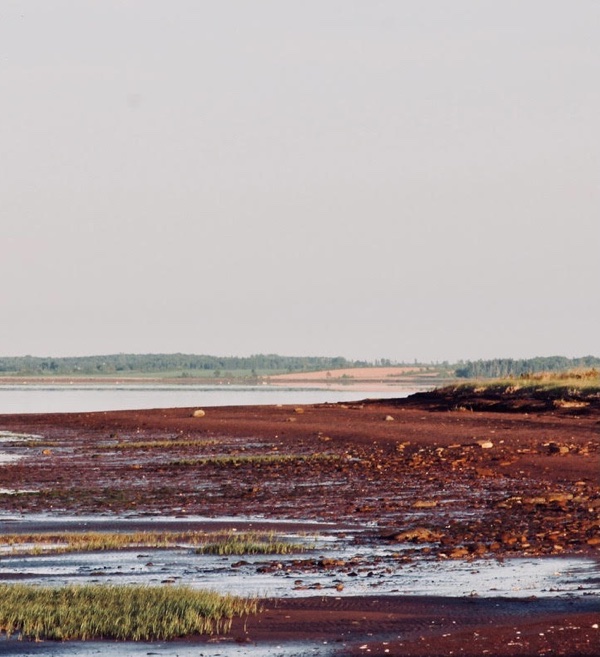The Noise of Walking
DOI:
https://doi.org/10.25071/1916-4467.40613Keywords:
ableism, co-constructed autoethnography, curriculum, walkingAbstract
Walking pedagogies provide opportunities for embracing diversity, at the same time that they honour a relationship with the Earth. As such, they can be used to encourage learners and curriculum makers to attune to their surroundings. Walking and writing together, though from disparate geographical locations, we provoke critical reflections on ableism through walking pedagogies. Inspired by our surroundings, we explicate and query curriculum experiences and the pedagogical reflections that accompany them/us, holding space for (dis)abilities. Co-constructed poetries frame our autoethnographic engagements with theory and practice. We offer two ways walking pedagogies may be engaged to disrupt ableism: walking to “disorient the norm” (Parrey, 2020) in the first instance, and moving as listening in the second. Through these disruptions to ableist discourses, we attend to ongoing circumstances of curriculum-making, attuning to the noise of walking in nature, where some have unrestricted access, some have partial access and some have no access at all.References
Broderick, A., & Lalvani, P. (2017). Dysconscious ableism: Toward a liberatory praxis in teacher education. International Journal of Inclusive Education, 21(9), 894-905. DOI: https://doi.org/10.1080/13603116.2017.1296034
Butala, S. (2005). Perfection of the morning: An apprenticeship in nature. Harper Collins.
Cixous, H., & Sellers, S. (Eds.). (2004). The writing notebooks of Helene Cixous. Continuum. DOI: https://doi.org/10.5040/9781472545978
Connor, D. J. (2019). Why is special education so afraid of disability studies? Analyzing attacks of disdain and distortion from leaders in the field. Journal of Curriculum Theorizing, 34(1), 10-23. https://journal.jctonline.org/index.php/jct/article/view/763/384
Docherty-Skippen, S., & Brown, H. (2017). Challenging the status quo: The evolution of the supervisor-student relationship in the process of potentially stigmatizing and emotionally complex autoethnographic research. Journal of the Canadian Association for Curriculum Studies, 15(1), 54-71. https://www.researchgate.net/publication/322103340
Feinberg, P. P. (2016). Towards a walking-based pedagogy. Journal of the Canadian Association for Curriculum Studies, 14(1), 147-165. https://jcacs.journals.yorku.ca/index.php/jcacs/article/view/40312/36186
Graham, L. J., & Slee, R. (2008). An illusory interiority: Interrogating the discourse/s of inclusion. Educational Philosophy and Theory, 40(2), 277-293. DOI: https://doi.org/10.1111/j.1469-5812.2007.00331.x
Hasebe-Ludt, E., Chambers, C., & Leggo, C. (2009). Life writing and literary métissage as an ethos for our times. Peter Lang.
Haywood Rolling, J., & Brogden, L. M. (2009). Two hours or more away from most things: Re:writing identities from no fixed address. Qualitative Inquiry, 15(7), 1139-1154. DOI: https://doi.org/10.1177/1077800408314342
Hsu, R., & Paek, J. (2012). “Way too Asian!”. In D. Bhandar, J. Heer, R. J. Gilmour, & M. C. K. Ma (Eds.), “Too Asian?”: Racism, privilege, and post-secondary education (pp. 95-103). Between the Lines.
Jardine, D. W. (2018). To know the world we have to love it. In E. Hasebe-Ludt & C. Leggo (Eds.), Canadian curriculum studies: A métissage of inspiration/imagination/interconnection (224-225). Canadian Scholars.
Gallagher, M., Kanngieser, A., & Prior, J. (2017). Listening geographies: Landscape, affect and geotechnologies. Progress in Human Geography, 41(5), 618-637. DOI: https://doi.org/10.1177/0309132516652952
Leggo, C. (2009). Living love stories: Fissures, fragments, fringes. In M. Prendergast, C. D. Leggo, & P. Sameshima (Eds.), Poetic inquiry: Vibrant voices in the social sciences (pp. 147-167). Sense.
Ng-A-Fook, N. (2014). Provoking the very "idea" of Canadian curriculum studies as a counterpointed composition. Journal of the Canadian Association for Curriculum Studies, 12(1), 10-69. https://jcacs.journals.yorku.ca/index.php/jcacs/article/view/37169
Nusbaum, E., & Steinborn, M. (2019). A “visibilizing” project: “Seeing” the ontological erasure of disability in teacher education and social studies curricula. Journal of Curriculum Theorizing, 34(1), 24-35. https://journal.jctonline.org/index.php/jct/article/view/764
Parrey, R. C. (2020). Embracing disorientation in the disability studies classroom. Journal of Literary & Cultural Disability Studies, 14(1), 37-56. DOI: https://doi.org/10.3828/jlcds.2019.16
Rauscher, L., & McClintock, J. (1996). Ableism curriculum design. In M. Adams, L. A. Bell, & P. Griffin (Eds.), Teaching for diversity and social justice (pp. 198-231). Routledge.
Séguin, R., Bleau, M., & Gagnon, E. (2012). Ma demeure: Anthologie [Box Set]. Spectra Music.
Young, K. (2018). The character of contemporary curriculum studies in Canada: A rumination on the ecological and metaphorical nature of language. In E. Hasebe-Ludt & C. D. Leggo (Eds.), Canadian curriculum studies: A métissage of inspiration/imagination/interconnection (pp. 78-86). Canadian Scholars.
Downloads
Published
How to Cite
Issue
Section
License
Copyright (c) 2021 Twyla Salm, Lace Marie Brogden 
Copyright for work published in JCACS belongs to the authors. All work is licensed under a Creative Commons Attribution-ShareAlike 4.0 International license.


